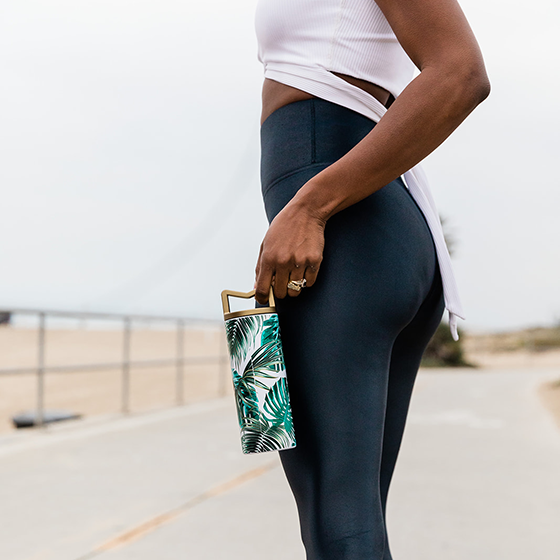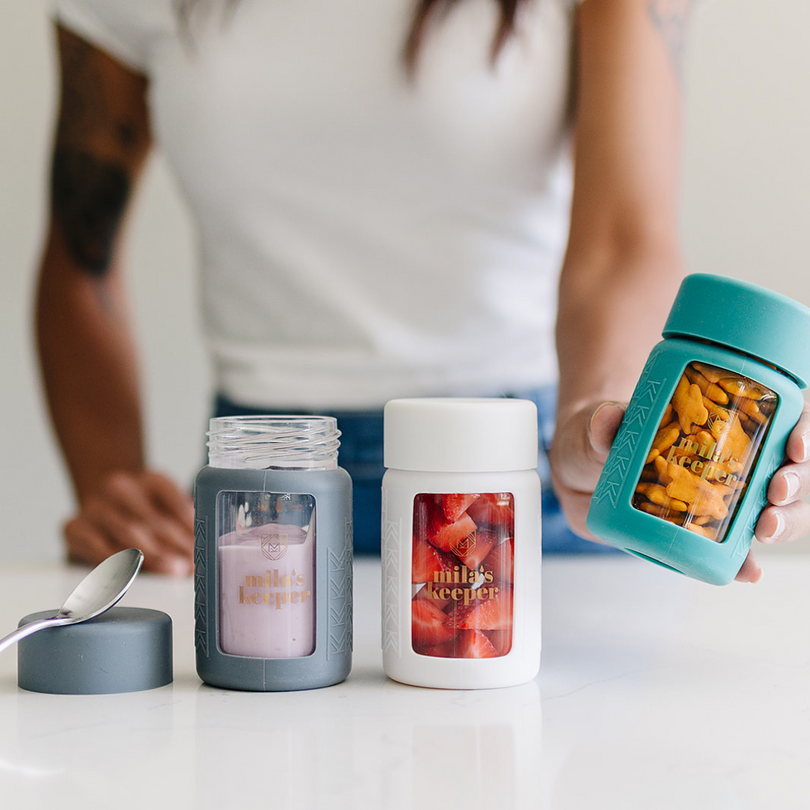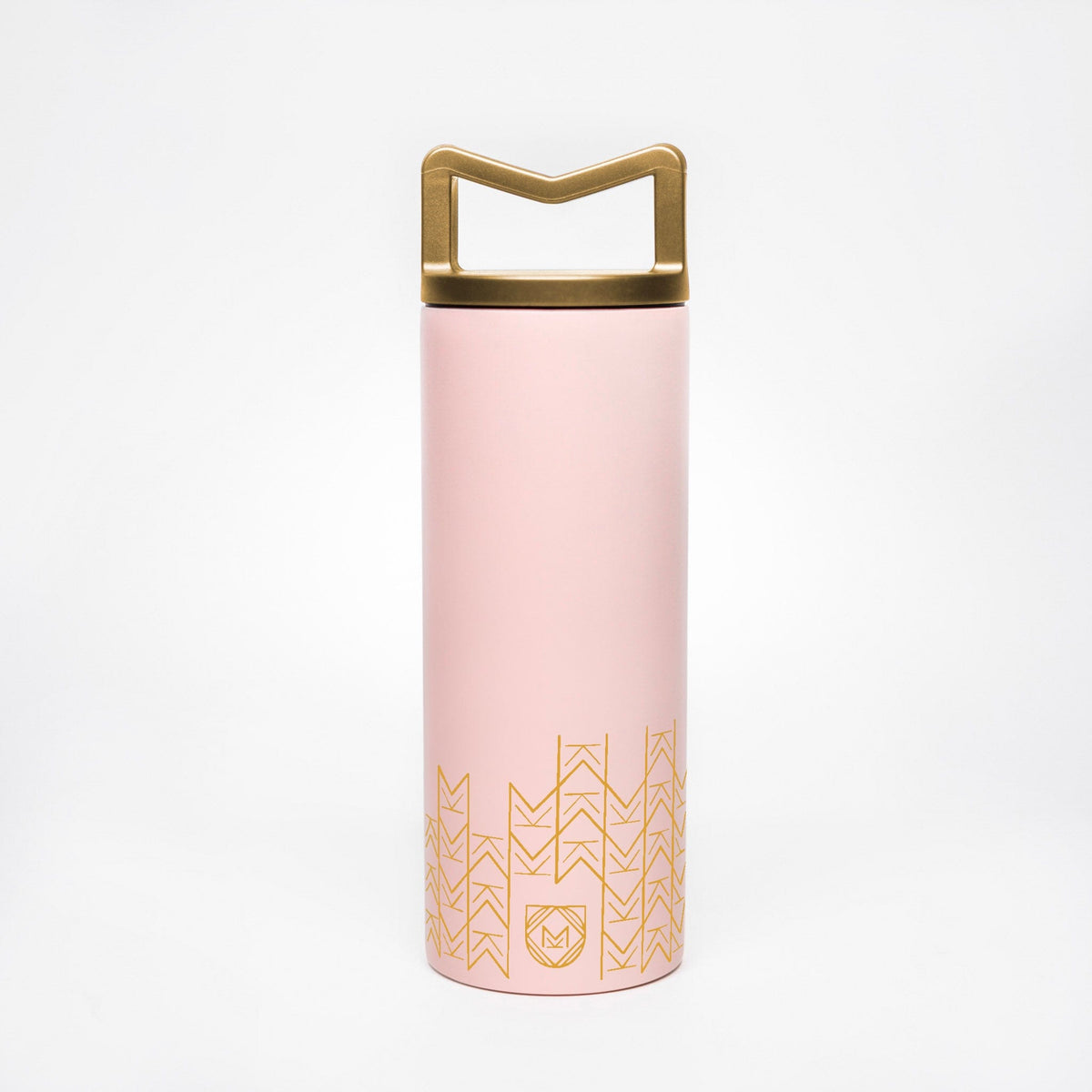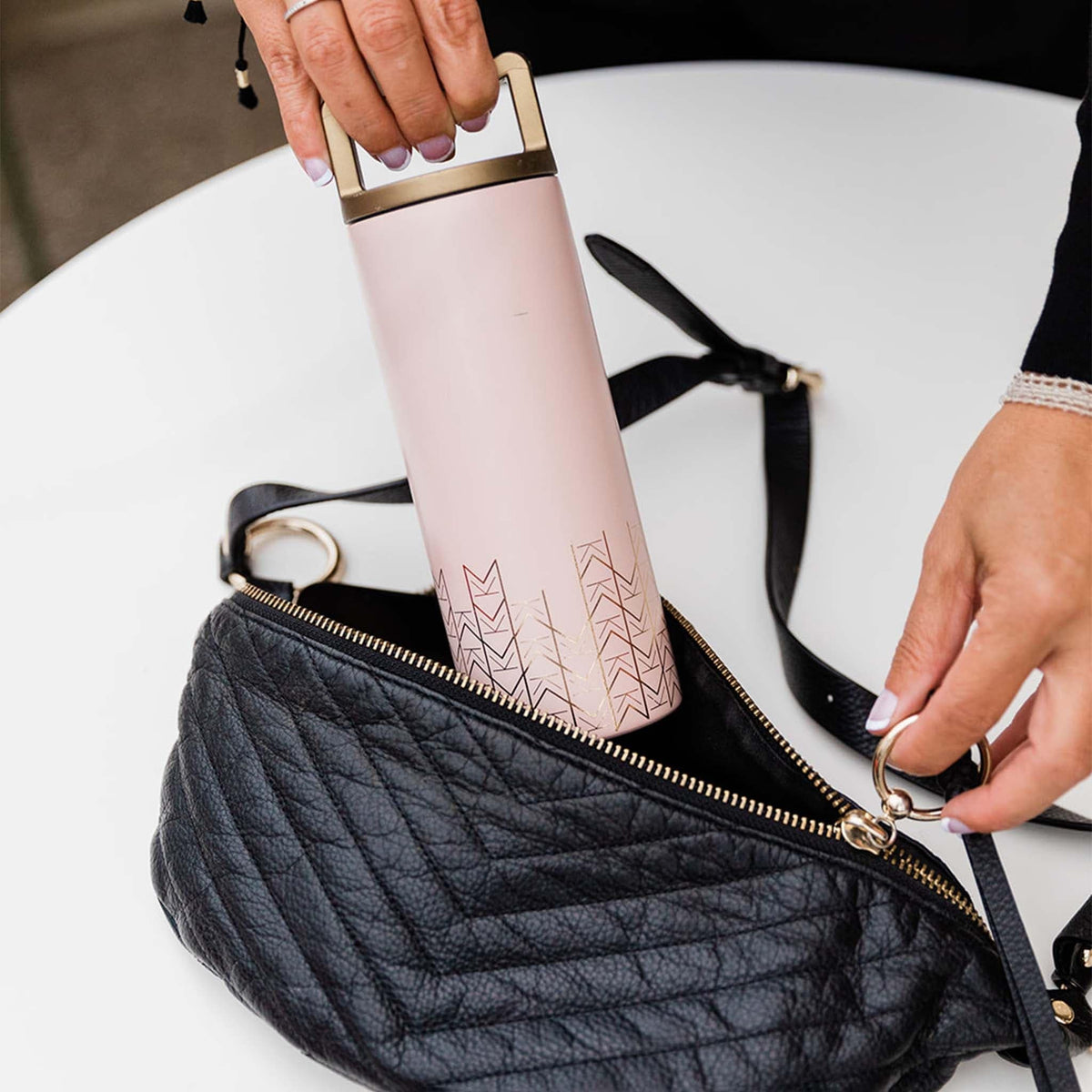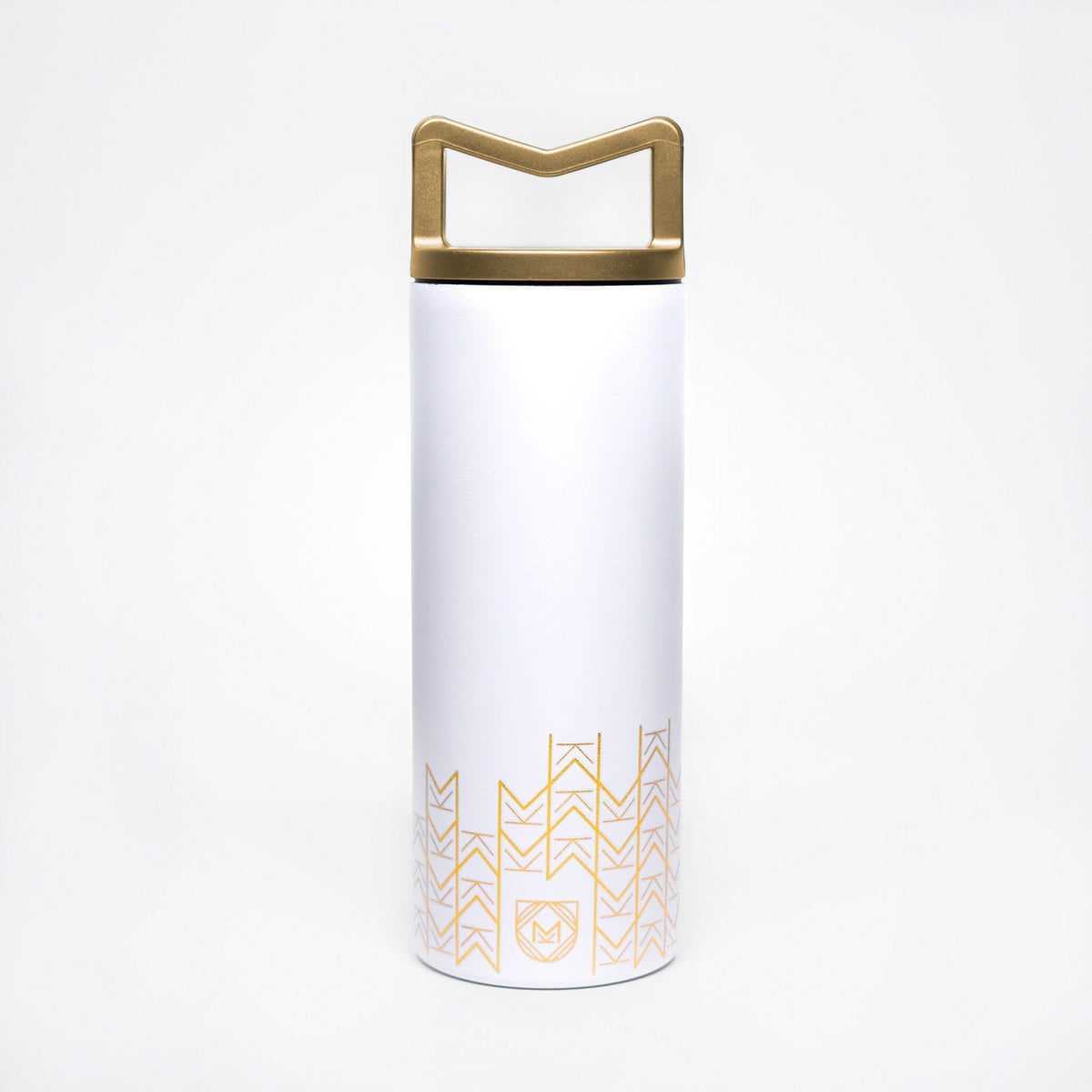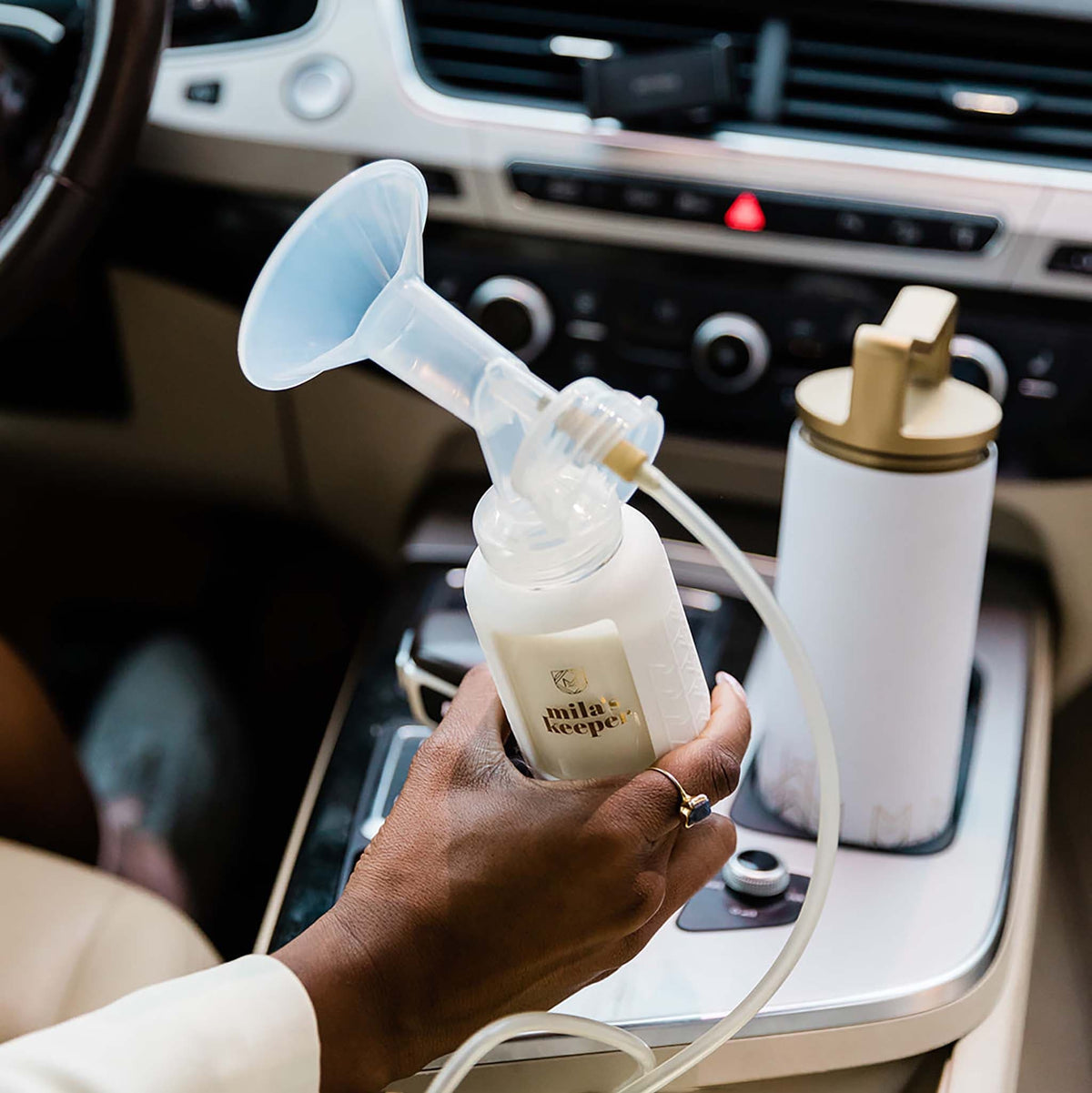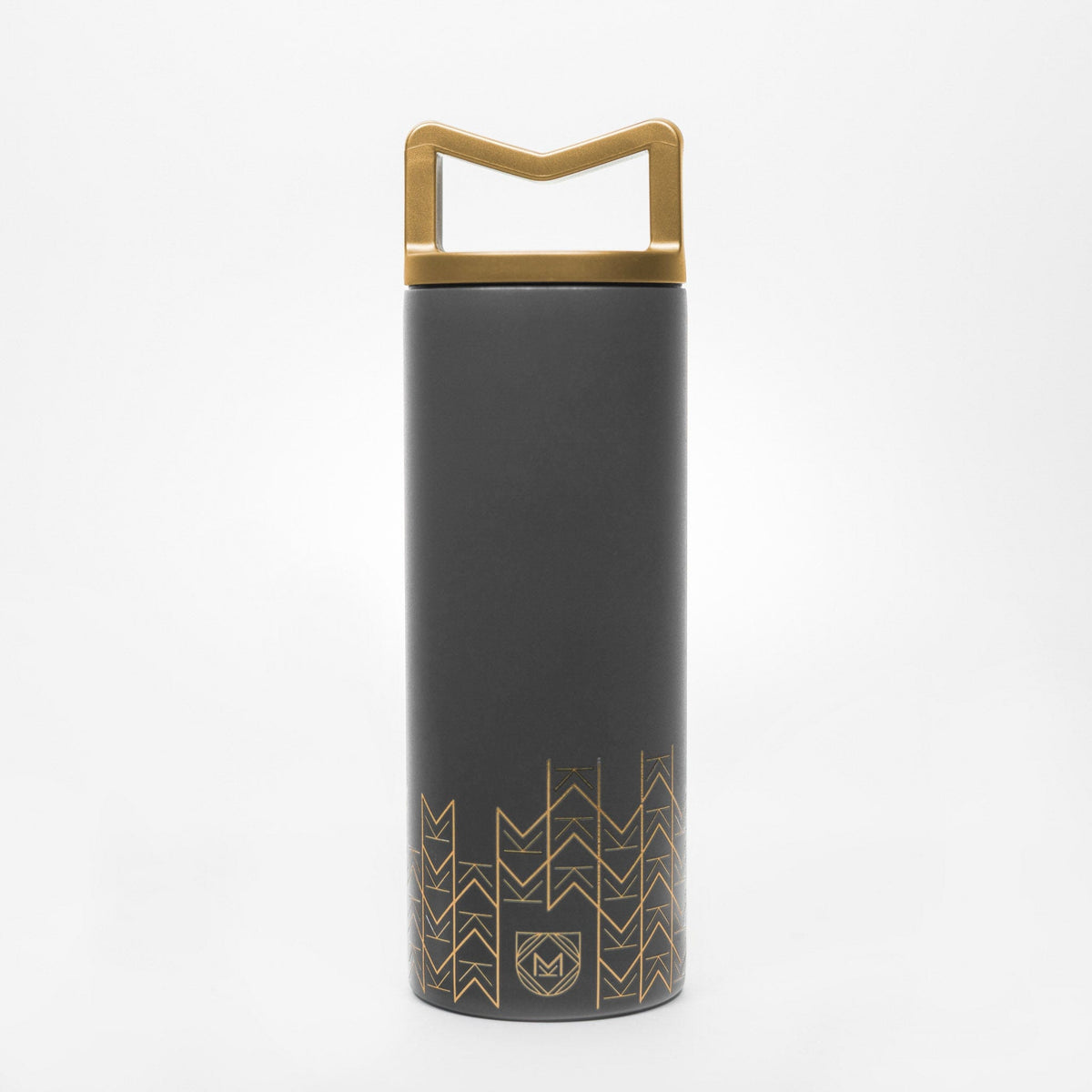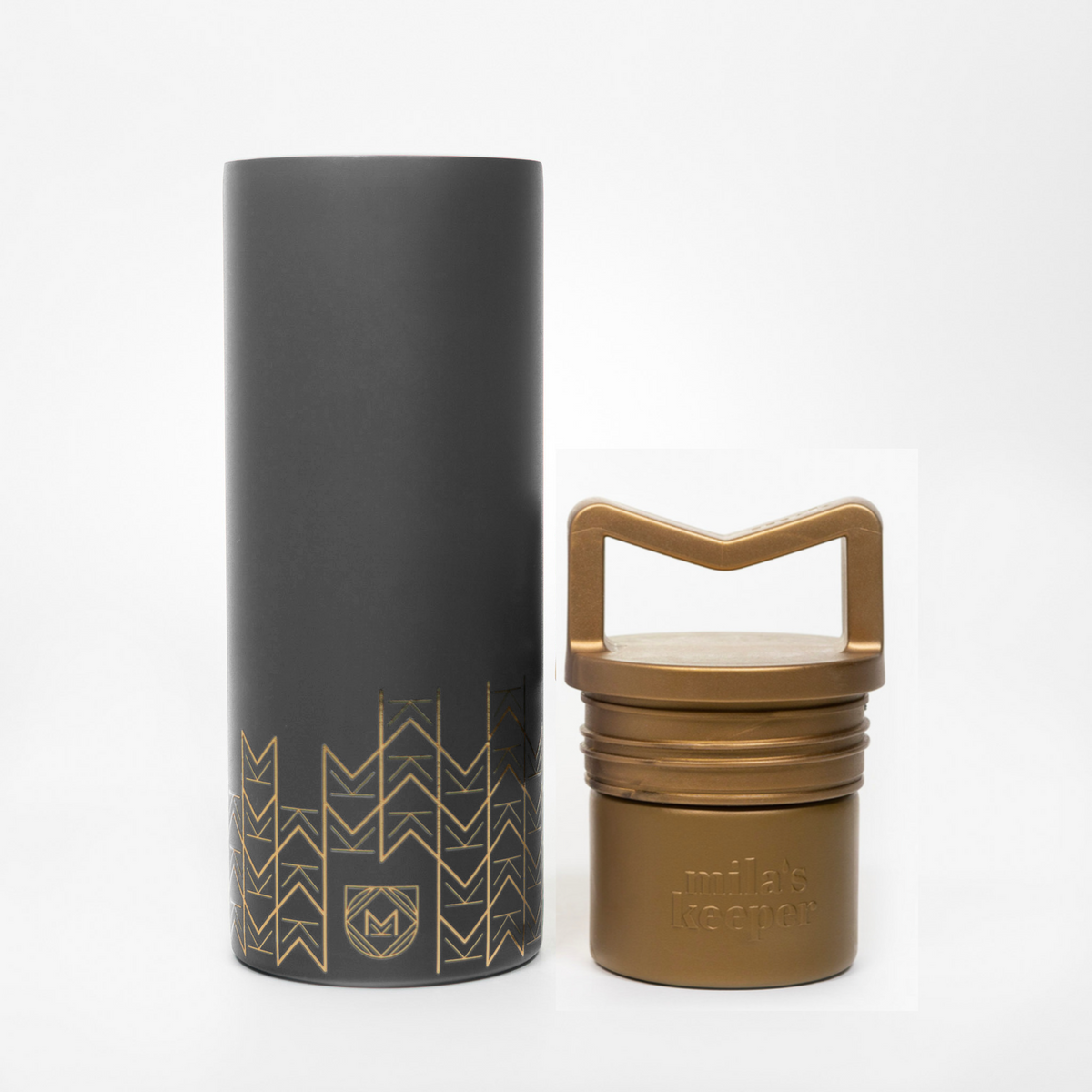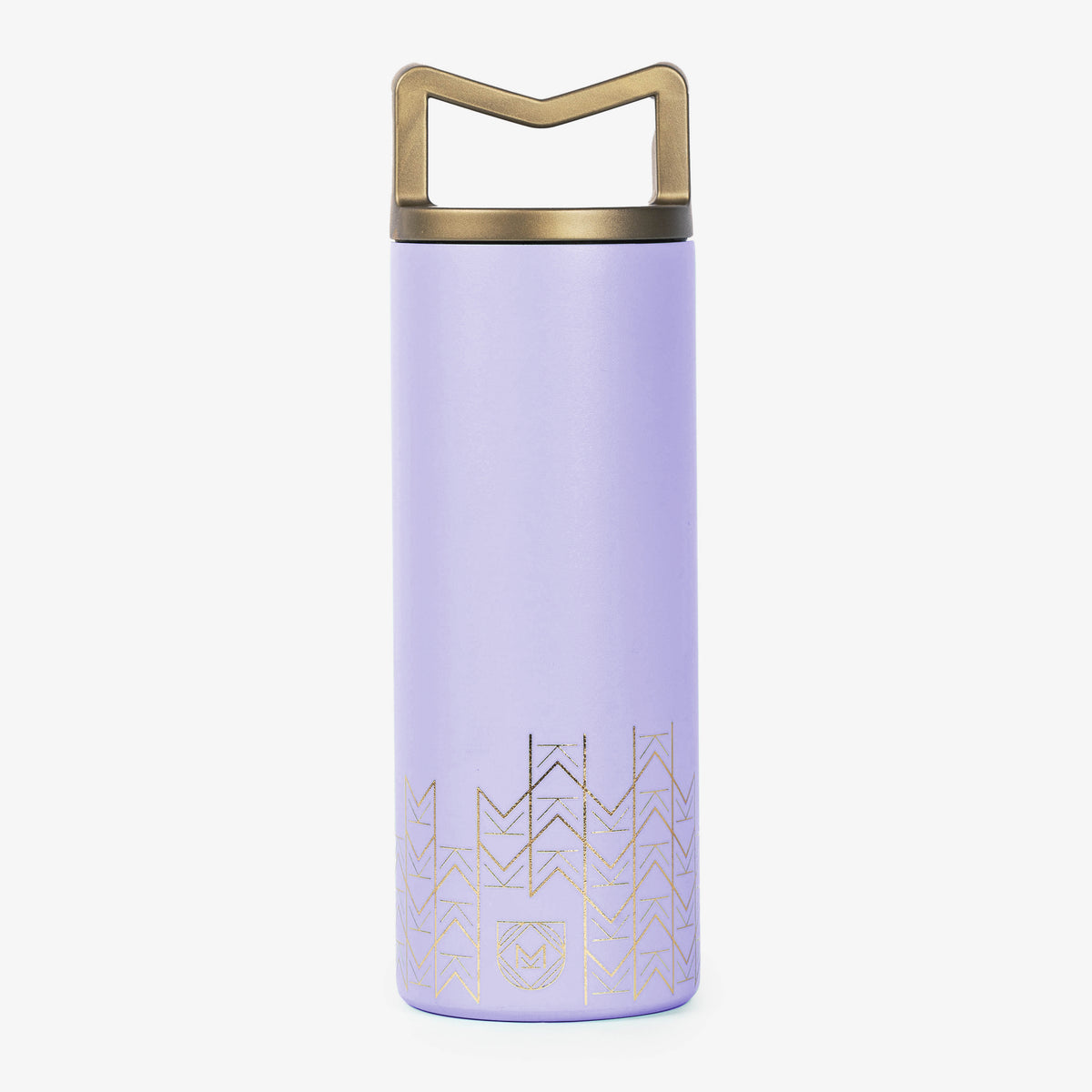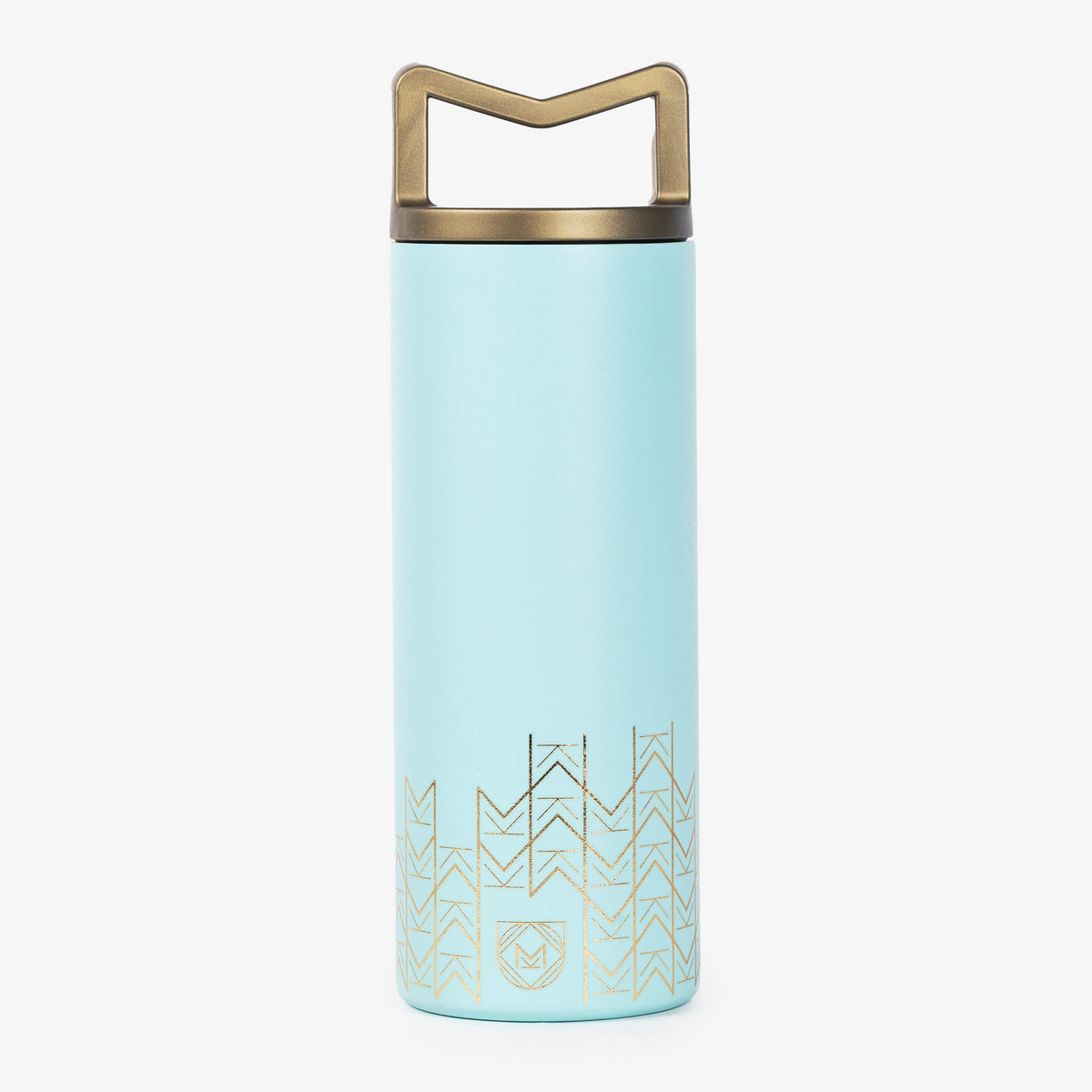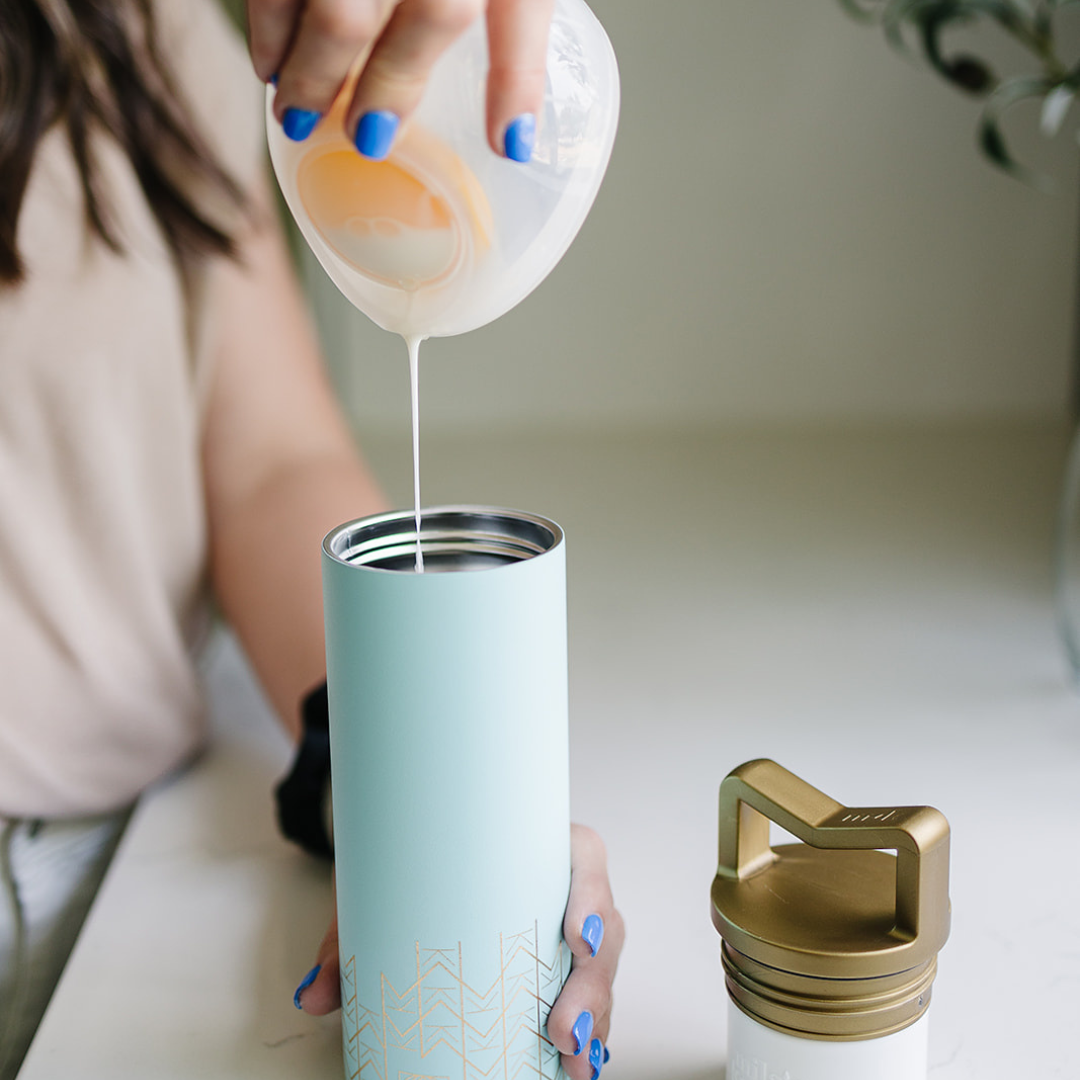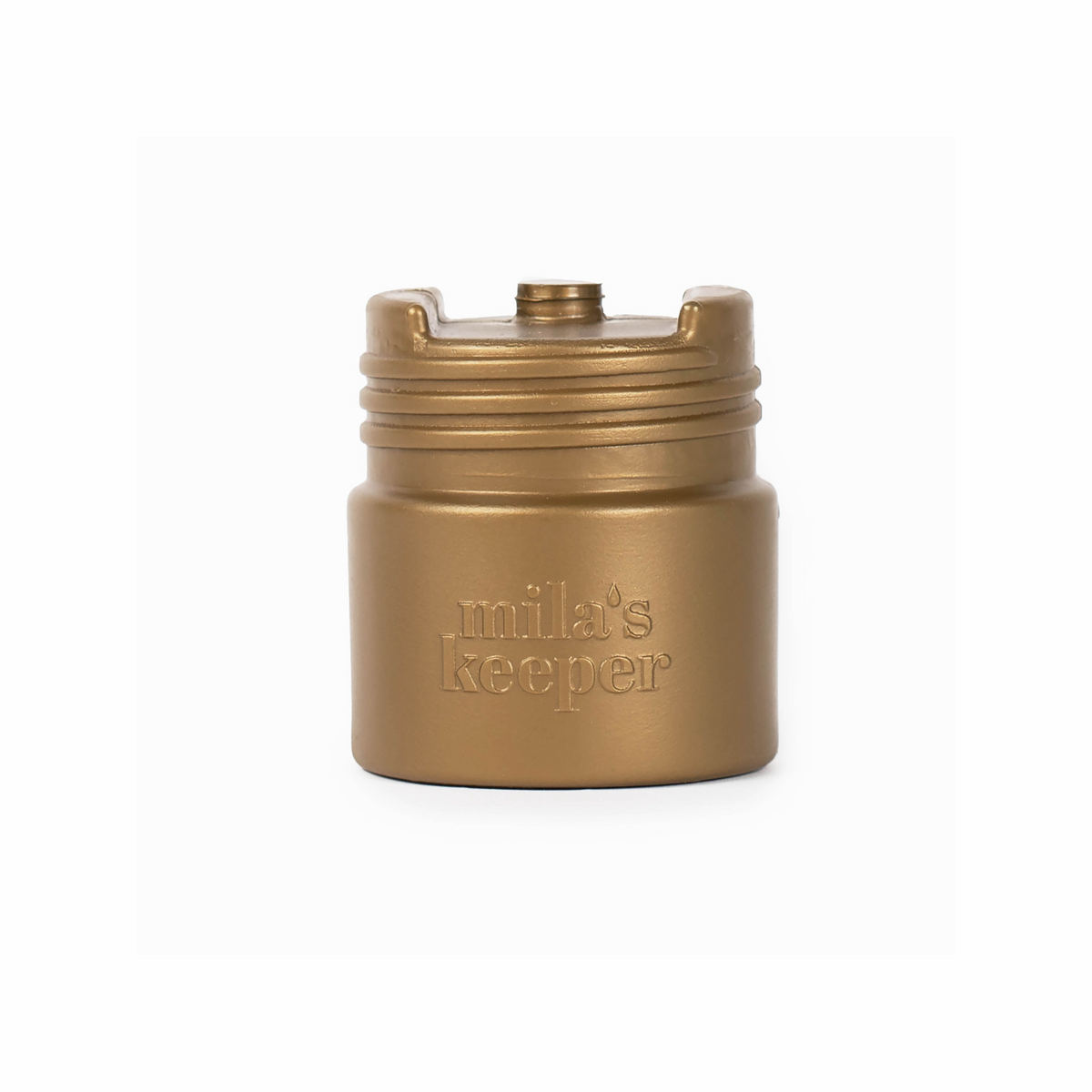Breastfeeding is a natural and beautiful way to nourish and bond with your baby. It’s recommended by healthcare professionals worldwide due to its numerous benefits for both mother and child. However, as a mother, you might find yourself facing a unique situation - you're pregnant again while still breastfeeding your little one. This might raise questions about the safety, feasibility, and potential challenges of breastfeeding while pregnant. In this blog post, we'll delve into the topic and explore what you need to know if you find yourself in this situation!
Is Breastfeeding While Pregnant Possible?
Yes, breastfeeding while pregnant is entirely possible for many women. The female body is incredibly adaptable, and it can accommodate both the nutritional needs of the growing fetus and the breastfeeding demands of the older child simultaneously.
Mamas that find themselves pregnant while still breastfeeding a child will have to make the decision themselves if they want to continue to breastfeed throughout the pregnancy, or if they should wean their breastfeeding child. With the American Academy of Pediatrics (AAP) recommending that moms continue to breastfeed until two years and beyond, more women following those guidelines could find themselves in this situation. Depending on the age of the baby they’re still breastfeeding, they may also find themselves breastfeeding an older child along with their newborn, also called tandem breastfeeding, which is also possible to do.
Several factors can influence a woman's ability to breastfeed during pregnancy. One of the primary factors is the individual's hormonal changes.
The hormone responsible for milk production, prolactin, can function efficiently during pregnancy. However, as pregnancy progresses, the levels of another hormone, progesterone, increase, which might affect the milk supply and composition. Some mothers may experience a decrease in milk production or changes in the taste of milk, leading to potential challenges in breastfeeding.
Another critical factor is the mother's overall health and nutrition. Pregnancy requires additional nutrients to support the growing fetus, and breastfeeding places additional demands on the mother's body. If a mother's diet isn’t well-balanced and doesn’t provide sufficient nourishment, it can affect her ability to breastfeed successfully during pregnancy.
The age of the breastfeeding child can also influence breastfeeding. If the child is older and nursing less frequently, the mother may find it easier to continue breastfeeding while pregnant. On the other hand, if the child is younger and nursing more frequently, it might be more physically demanding for the mother to meet both their nutritional needs and the demands of the new pregnancy.
Emotional and physical well-being also play a significant role in breastfeeding while pregnant. The physical changes and discomforts of pregnancy, coupled with the demands of caring for a young child, can lead to fatigue and stress. This can impact a mom's ability to continue breastfeeding during pregnancy and is something she should take into account. Sometimes the goals we set for ourselves need to be adjusted as circumstances change. Nobody should feel guilty or be made to feel guilty for stopping breastfeeding while pregnant. You should always listen to your body and go easy on yourself when you need to.
In some cases, medical conditions may also impact breastfeeding during pregnancy. Certain health issues or complications may require a mom to discontinue breastfeeding or seek medical guidance to ensure the well-being of both herself and her unborn baby.
Can You Get Pregnant While Breastfeeding?
Breastfeeding can have a significant impact on ovulation and fertility in women. The effect largely depends on the breastfeeding pattern, frequency, and exclusivity.
Breastfeeding can act as a reliable form of birth control, but only under certain circumstances. While many moms experience a time of delayed fertility during breastfeeding, and breastfeeding can suppress ovulation and menstruation, it isn’t foolproof in preventing pregnancy.
The lactational amenorrhea method (LAM) can work as a natural contraceptive under specific conditions, including exclusive breastfeeding, feeding on demand, and no formula supplementation. When all the conditions are met, you have a less than one percent chance of conceiving. However, LAM's effectiveness decreases as the baby gets older and starts solids, and the frequency of breastfeeding reduces. You really can only use breastfeeding as birth control for the first six months of a baby’s life, or until your period returns. After that you should plan to use a different form of birth control.
As described in The Womanly Art of Breastfeeding, all of the following conditions need to be met in order for the Lactation Amenorrhea Method of using breastfeeding to delay fertility:
- Your periods have not returned.
- Your baby is exclusively and frequently fed from your breasts- this is especially important to remember when your little one begins sleeping through the night. It means not just that your baby does not have bottles, but also that they do not use a pacifier, in other words that all of your baby’s sucking needs are met at your breast.
- Your baby is less than 6 months old. If your little one is older and eating solid foods, your chances of ovulating and risk of pregnancy increases. Some moms will find it takes more than six months for their cycles and fertility to return, while other mothers find that their cycles and fertility return earlier than six months. It is also important to mention that after six months, there is a higher chance that you might ovulate and possibly become pregnant before your first postpartum period. If you suspect you are pregnant, you will want to check with your health care professional.
If you’re breastfeeding and trying to not get pregnant, you need to make sure that all the criteria are being met if you’re using LAM for contraception. The return of fertility is variable, and since ovulation occurs before menstruation, you could be fertile before you realize it.
So it's crucial for mamas to be aware of their individual body's changes and consider suitable contraceptive methods if they wish to prevent pregnancy effectively.
On the other hand, if you’re trying to get pregnant while breastfeeding, you may have a harder time if you’re meeting all of the conditions of LAM. While ovulation can resume as early as eight weeks postpartum in some women, it can take up to two years for others.
If you're looking to increase your chances of getting pregnant while breastfeeding, here are some strategies that may help:
While breastfeeding can cause irregular periods, tracking changes in cervical mucus and basal body temperature can help identify when you might be ovulating.
Breastfeeding at night has a stronger impact on suppressing ovulation due to the increased levels of the hormone prolactin. If your baby is sleeping through the night or reducing nighttime feedings, it might be helpful to try offering additional feedings during the day to potentially increase fertility.
As your baby starts consuming solid foods, breastfeeding frequency may naturally decrease. Introducing solids alongside breastfeeding can help balance hormones and promote a return to ovulation.
If you're ready to conceive and your baby is nearing the age of weaning, gradually reducing breastfeeding sessions can increase your chances of ovulation.
If you have been trying to conceive for several months without success, consider consulting with a healthcare provider or a reproductive endocrinologist. They can assess your individual situation, provide guidance, and rule out any underlying fertility issues.
Side Effects of Breastfeeding While Pregnant:
Breastfeeding while pregnant can be a beautiful experience, but it's not without its challenges. Some women might encounter certain side effects, including:
1. Changes in Milk Supply:
As mentioned earlier, the hormonal changes during pregnancy can affect milk supply. Some women might notice a decrease in milk production, leading to frustration for both the baby and mama. The taste of the milk might also change, and some older infants may self-wean due to this difference.
2. Increased Sensitivity:
During pregnancy, your breasts can become more sensitive and tender. Breastfeeding, which can sometimes cause discomfort on its own, may become even more challenging. Moms might experience nipple soreness or aversion to breastfeeding due to heightened sensitivity.
3. Nutritional Needs:
Pregnancy requires additional nutrients for the growing fetus, which can put an extra strain on the mother's body if she's breastfeeding concurrently. Proper nutrition becomes crucial to ensure the well-being of both the unborn baby and the breastfeeding child.
4. Fatigue:
Pregnancy can already be draining, and when combined with the demands of breastfeeding, it can lead to increased fatigue for the mother. Rest and self-care become essential during this time.
Best Practices and Coping Strategies for Moms Who Are Pregnant While Breastfeeding
If you find yourself breastfeeding while pregnant, you're not alone. Many mothers have successfully navigated this journey, and there are several best practices and coping strategies to help you through this period:
1. Consult with Healthcare Professionals:
Before continuing breastfeeding while pregnant, consult with your obstetrician and a lactation consultant. They can provide personalized advice and address any concerns you might have based on your health history and pregnancy progress.
2. Prioritize Nutrition:
As you're providing nourishment for both your breastfeeding child and the developing fetus, proper nutrition is crucial. Ensure you're consuming a well-balanced diet rich in essential vitamins and minerals. Consider talking to a registered dietitian to help you plan meals that meet your unique requirements.
3. Hydration:
Staying hydrated is essential for both breastfeeding and pregnancy. Make sure to drink plenty of water throughout the day to support milk production and maintain your well-being.
4. Rest and Self-Care:
Pregnancy can be physically and emotionally taxing, especially when combined with the responsibilities of caring for a breastfeeding child. Prioritize rest and self-care whenever possible. Nap when the baby naps, seek help from family and friends, and don't hesitate to ask for assistance.
5. Address Breastfeeding Challenges:
If you encounter challenges with breastfeeding during pregnancy, seek support from a lactation consultant. They can provide guidance on techniques to ease discomfort and offer solutions to maintain breastfeeding if that's your goal.
6. Consider Tandem Breastfeeding:
If your older child continues to breastfeed after the new baby is born, you may consider tandem breastfeeding. Tandem breastfeeding allows both children to benefit from the nourishment and comfort of breastfeeding and can create a strong sibling bond.
7. Stay Attentive to Your Body:
Every woman's body is unique, and what works for one may not work for another. Pay attention to how you feel physically and emotionally during the journey of breastfeeding while pregnant. Be open to adjusting your approach based on your body's signals.
Alternative Options to Consider
If you prefer to stop breastfeeding when you become pregnant, there are some ways that you can do that.
If your goal was to continue to breastfeed throughout your pregnancy but come to the conclusion that exclusively breastfeeding isn’t going to work for you, you could always supplement with formula to reduce the frequency of breastfeeding. This is a good option for the mamas that want to keep the connection that breastfeeding provides, while also giving their pregnant body a rest. Moms could designate one or two feedings for breastfeeding, maybe before nap and bedtime, and rely on formula the rest of the time.
If you’re planning ahead and intend to get pregnant during the period that you would still be breastfeeding, you could pump and store breast milk to give your baby while you’re pregnant and breastfeeding is on hold. This is a good option for the mamas that have bad morning sickness or other ailments during pregnancy and know they wouldn’t be comfortable or able to continue breastfeeding while they’re pregnant. This option is also good for the mamas that are thinking ahead and know that they want to be providing breast milk to their baby, but won’t want to be breastfeeding, for whatever reason.
For the mamas that are exclusively pumping and want to continue to do so while they’re pregnant, involving a partner or family member in caring for the baby while expressing milk will be a big help. It’s difficult and time-consuming enough to exclusively pump while caring for a baby, and adding pregnancy to that mix could potentially be too much. Having someone to help when possible will give the pregnant mama a little break and some much needed rest. If the pregnant mama is also working outside the home while pumping and pregnant, some extra help is also needed. Some ways a partner can help are:
- Be on pump duty. Clean and sterilize any bottles and equipment used to express breast milk throughout the day. If using an insulated breast milk bottle, make sure to get the ice pack in the freezer so it’s ready to use the next day.
- Label and organize milk expressed during the day for future use. This could also include prepping bottles for the next day.
- Help get things packed up and prepared in the morning. Pumping at work requires a little more baggage, and when you have a small child at home and you’re trying to get off in the morning with all the equipment you’ll need throughout the day, it can be stressful. Having somebody pack everything up and get it ready for you to just grab and go will be a big help.
- Get on water duty! This one doesn’t seem like a big help, but staying hydrated while breastfeeding or pumping is really important. A partner can help refill water glasses or fill up a water bottle for morning commutes.
If you want to help your pregnant and breastfeeding partner out and aren’t sure how, check in with them and ask what you can do. Also, their needs may change and grow throughout the pregnancy, so keep checking in to see how you can help them.
Thrive During Your Breastfeeding Journey with Mila’s Keeper!
Breastfeeding while pregnant can be an enriching and rewarding experience for both the mama and her children. Although it may come with challenges and side effects, with proper support, self-care, and information, many moms successfully navigate this journey. Remember to consult with healthcare professionals, prioritize nutrition and hydration, and listen to your body's needs throughout this remarkable period. Embrace the uniqueness of your breastfeeding journey while pregnant, and cherish the special bond it creates between you and your children.
Keep Reading related blog: 5 Places to Find Breastfeeding Support
--
A female-designed and female-run company, Mila's Keeper is on a mission to empower women to thrive during their breastfeeding journey by offering reusable, eco-friendly breast milk storage solutions for their day-to-day needs. Get the latest tips and info on Mila's Keeper products by following us on Facebook, Twitter, Instagram, Pinterest, and LinkedIn.

